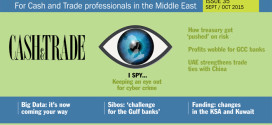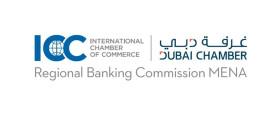 Business confidence in the Middle East continued to fall in the second quarter of 2015, but not as quickly as it had in the first three months of the year, according to the to the Global Economic Conditions Survey (GECS) organised by ACCA (the Association of Chartered Certified Accountants) and IMA (the Institute of Management Accountants).
Business confidence in the Middle East continued to fall in the second quarter of 2015, but not as quickly as it had in the first three months of the year, according to the to the Global Economic Conditions Survey (GECS) organised by ACCA (the Association of Chartered Certified Accountants) and IMA (the Institute of Management Accountants).
The slight optimism was due to a temporary reprieve in oil prices during the spring, but was a short-lived flame of hope for OPEC members, which was quickly extinguished by the prospect of Iran re-entering the market within a year.
More than any other region, firms in the Middle East began looking for opportunities in new markets in the last three months: 43 per cent of them took this approach, while over half of firms (53 per cent) sought ways of reducing costs during this difficult period, said respondents to the survey.
Some economies had an easier time than others. Qatar, for example, continued to boom, owing to large reserves of natural gas rather than oil, as well as ongoing investments ahead of the 2022 FIFA World Cup.
Meanwhile, the global economy is facing a period of volatility and major readjustments, according to the survey.
The second quarter of 2015 saw an abortive rise in oil prices, several expected and unexpected rate cuts by central banks, a rebound in Western consumer sentiment and a stock market crash in China.
These events led to business confidence levelling off in the second quarter of 2015 following six months of improvement, according to GECS.
The slowing in confidence can be traced to the world’s largest economies: many businesses in the US were affected by severe winter storms, port disruptions and a strong dollar, while those in China faced a cooling economy in the first quarter and over-heating stock markets in the second.
Of these factors, China’s economic slowdown and accompanying shift from investment-to-consumption-driven growth will have the greatest long-term impact on global trade patterns, hitting the world’s major commodity exporters particularly hard, says the survey.
Standard and Poor’s cut its credit outlook for Saudi Arabia in February
to negative from stable. But Moody’s and Fitch have kept their outlooks stable, on the grounds that Riyadh’s financial reserves will let it weather
a period of cheap oil.
 Cash And Trade Magazine For Cash and Trade professionals in the Middle East
Cash And Trade Magazine For Cash and Trade professionals in the Middle East




